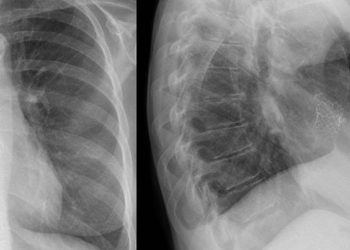Early treatment of seizures in newborns associated with decreased seizure burden and frequency.
Neonatal seizure management – Is the timing of treatment critical?
1. In a cohort of newborn infants, treatment of seizures within an hour of seizure recognition was associated with decreased seizure burden and decreased number of total seizures over the next 24 hours.
Evidence Rating Level: 2 (Good)
Seizures are a leading cause of hypoxic-ischemic encephalopathy in newborn infants. Thus, current guidelines recommend antiseizure medication as soon as possible following seizure recognition, however, there are no specific guidelines on target treatment times. Therefore, this retrospective cohort study aimed to assess the impact of the time to treatment of the first electrographic seizure. It utilized data from two European multicentre cohort studies and included a total of 472 participants, of which 154 (32.6%) had seizures, confirmed with an electroencephalogram. From these participants, 69 were exclusively treated after onset of the electrographic seizures and this was the cohort analysed in the study. 21 infants received antiseizure medication within 1 hour, 15 infants between 1-2 hours, and 33 infants after 2 hours of seizure onset. The primary outcome measured was seizure burden (duration of all seizures during the monitoring period of 24 hours following initial seizure onset). It was found that infants treated with antiseizure medication within 1 hour had significantly lower seizure burden compared to the group that received medication after 2 hours of onset (36 minutes vs 75 minutes; p=0.029). The secondary outcomes measured were maximum seizure burden, presence of status epilepticus, number of seizures and total number of antiseizure medication doses. It was found that infants that received medication within 1 hour had decreased number of seizures compared to those who received medication after 2 hours (10 vs 28; p=0.035). There were no statistically significant differences in any other secondary outcomes. Therefore, the study concluded that there may be greater benefit to treating infants with antiseizure medication within 1 hour of electrographic seizures. However, larger prospective studies are needed to further validate these results.
Image: PD
©2021 2 Minute Medicine, Inc. All rights reserved. No works may be reproduced without expressed written consent from 2 Minute Medicine, Inc. Inquire about licensing here. No article should be construed as medical advice and is not intended as such by the authors or by 2 Minute Medicine, Inc.







